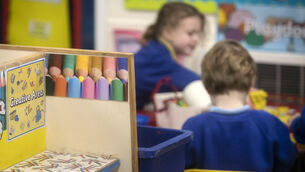Teenagers promote online safety message in primary schools

THE benefits and risks to young children of using the internet can be easily found by listening to the experiences of fourth-class pupils.
Two older boys who returned to their old classroom found out just that when they taught an online safety programme to nine- and 10-year-olds at St Joseph’s National School near Cork’s city centre.
















